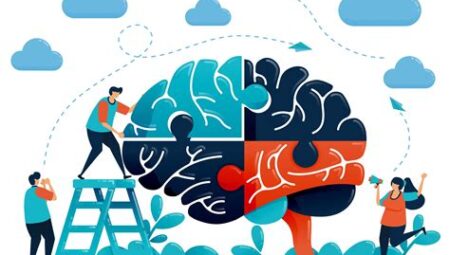Are you fascinated by the world of computer programming? Do you dream of becoming a skilled programmer, creating innovative software, and being at the forefront of technological advancements? If so, you’ve come to the right place. In this blog post, we’ll explore the exciting and dynamic world of computer programming and provide you with valuable insights on how to pursue a career in this rapidly growing field. From understanding the basics of computer programming to gaining practical experience through internships and personal projects, we’ll cover everything you need to know to unlock the code to a successful career in programming. Whether you’re a beginner looking to get started or a seasoned programmer aiming to advance your skills, this comprehensive guide will equip you with the knowledge and resources you need to embark on a fulfilling and rewarding journey in the world of computer programming. So, let’s dive in and uncover the secrets to mastering the art of programming.
Table of Contents
Understanding the Basics of Computer Programming
Computer programming is the process of writing instructions that computers can execute. It involves designing, writing, testing, and maintaining the source code of computer programs. This source code can be written in a variety of programming languages, each with its own specific syntax and rules.
One of the key aspects of computer programming is understanding algorithms, which are step-by-step procedures or formulas for solving a problem. These algorithms form the foundation of computer programs and are essential for performing tasks efficiently and accurately.
Another important concept in computer programming is data structures, which are ways of organizing and storing data so that it can be accessed and modified efficiently. Understanding data structures is crucial for writing programs that can manipulate and process large amounts of data.
Overall, having a solid grasp of the basics of computer programming is essential for anyone looking to pursue a career in software development or to simply understand the technology that powers so much of our daily lives.
Choosing a Programming Language: Which One is Right for You?
When starting your journey into the world of programming, one of the most crucial decisions you will have to make is choosing the right programming language to learn. With so many options available, it can be overwhelming to determine which language is best suited for your goals and interests. However, with a clear understanding of your objectives and careful consideration of the various languages, you can make an informed choice that will set you on the path to success.
Before making a decision, it is important to assess your reasons for learning programming. Are you interested in web development, data analysis, machine learning, or mobile app development? Each of these fields has its own set of preferred languages, and identifying your desired area of focus will help narrow down your options. For example, if you aspire to become a web developer, languages such as HTML, CSS, and JavaScript are indispensable, while Python is widely used in data analysis and machine learning.
Another factor to consider is the demand for a particular language in the job market. Researching the industry trends and job prospects can give you valuable insights into which languages are currently in high demand. For instance, languages like JavaScript, Python, and Java are consistently sought after by employers, making them safe choices for beginners.
Furthermore, understanding the learning curve and complexity of each language is essential. Some languages, such as Python, are known for their readability and simplicity, making them great options for beginners. On the other hand, languages like C++ and Ruby may be more challenging for novices to grasp. Considering your own learning style and capabilities will help you select a language that aligns with your strengths.
Learning Resources: Where to Start Your Programming Journey
When beginning your journey into the world of programming, it’s important to start off on the right foot by seeking out the best learning resources available. The abundance of online tutorials, courses, and books can be overwhelming, so it’s crucial to find the resources that suit your learning style and goals.
One popular option for beginners is to start with interactive online platforms such as Codecademy, FreeCodeCamp, or Udemy. These platforms offer a wide range of programming courses, from introductory lessons to advanced topics, and provide hands-on practice through coding challenges and projects.
For those who prefer a more structured approach, enrolling in a formal programming bootcamp or pursuing a degree in computer science or software engineering at a university may be the ideal choice. These programs offer comprehensive curriculums taught by experienced instructors, providing a well-rounded education in programming fundamentals and advanced concepts.
Additionally, don’t underestimate the value of free resources such as YouTube tutorials, online forums, and open-source documentation. Engaging with the programming community through forums like Stack Overflow or GitHub can not only provide valuable guidance but also foster connections with fellow learners and experienced developers.
Mastering the Fundamentals: Essential Programming Concepts
When it comes to mastering the fundamentals of programming, it is crucial to have a strong understanding of essential programming concepts. These concepts serve as the building blocks for developing more complex programs and applications.
One of the most important programming concepts to understand is variables. Variables are used to store and manipulate data within a program. They can be assigned different values and are essential for performing calculations and making decisions within the code.
Another essential programming concept is control structures, which include conditional statements and loops. These structures allow developers to control the flow of a program by making decisions and repeating blocks of code based on certain conditions.
Understanding data types, functions, and object-oriented programming are also essential programming concepts that every developer should master. These concepts form the foundation of modern programming languages and are essential for building scalable and maintainable code.
Developing Problem-Solving Skills: Crucial for Success in Programming
Developing problem-solving skills is crucial for success in programming. As a programmer, you will constantly encounter complex issues and bugs that need to be resolved. Being able to effectively identify, analyze, and solve these problems is essential for writing efficient and functional code.
One way to develop your problem-solving skills is by practicing coding challenges and puzzles. Websites like LeetCode, HackerRank, and CodeSignal offer a wide range of problems that are designed to test your ability to think critically and come up with creative solutions. Engaging in these challenges regularly can sharpen your problem-solving skills and improve your overall programming abilities.
Another effective method for honing your problem-solving skills is through collaboration with other programmers. Participating in open-source projects or contributing to online coding communities can expose you to a diverse range of problems and solutions. Working alongside experienced developers can provide valuable insights and help you learn new problem-solving techniques.
Furthermore, learning and mastering algorithms and data structures is essential for building strong problem-solving skills. Understanding how different algorithms work and when to use them can significantly enhance your ability to solve complex programming problems. Additionally, being proficient in data structures allows you to efficiently organize and manipulate data, which is crucial for developing elegant solutions to programming challenges.
Building a Strong Foundation: Programming Algorithms and Data Structures
When it comes to becoming a successful programmer, one of the most important things you can do is to build a strong foundation in programming algorithms and data structures. These are the building blocks of computer programming and are essential for understanding how to write efficient and effective code. Without a solid understanding of algorithms and data structures, it can be challenging to solve complex problems and create scalable and maintainable software.
One of the key benefits of understanding programming algorithms and data structures is that it allows you to write code that is not only efficient but also easy to maintain and understand. By learning how to use different data structures such as arrays, linked lists, and trees, you can optimize the performance of your code and improve the overall user experience. Additionally, a strong foundation in algorithms enables you to approach problem-solving in a more structured and logical manner, leading to more elegant and effective solutions.
Moreover, mastering programming algorithms and data structures opens up a world of possibilities in terms of career opportunities. Many tech companies are on the lookout for developers who have a strong understanding of these concepts, as they are fundamental to building robust and scalable software systems. By honing your skills in algorithms and data structures, you can set yourself apart from other job candidates and increase your chances of landing a lucrative and fulfilling job in the tech industry.
Overall, building a strong foundation in programming algorithms and data structures is crucial for anyone looking to succeed in the field of computer programming. Whether you’re a beginner looking to kickstart your programming journey or a seasoned developer aiming to enhance your skills, dedicating time and effort to mastering these concepts will undoubtedly pay off in the long run.
The Importance of Collaboration and Open Source Projects
Collaboration and open source projects play a crucial role in the world of programming. Collaboration allows programmers to work together, share ideas, and build upon each other’s work. This not only leads to more efficient problem-solving, but also fosters a sense of community within the programming world. Open source projects, in particular, are essential for learning and growth. They provide opportunities for programmers to contribute to real-world projects, gain experience, and receive feedback from peers.
Furthermore, open source projects are invaluable for the development of new technologies. By sharing code and resources, programmers can collectively push the boundaries of what is possible in the field of programming. This spirit of collaboration drives innovation and encourages the sharing of knowledge, ultimately benefiting the entire programming community.
Participating in open source projects also has career benefits. It demonstrates a programmer’s ability to work in a team, contribute to larger projects, and work with others to achieve common goals. Employers often look for candidates who have experience in open source projects as it shows a commitment to the field and a willingness to engage in collaborative efforts.
In conclusion, collaboration and open source projects are integral to the programming industry. They provide opportunities for learning, growth, and the advancement of technology, while also offering career benefits for those who participate. Embracing the spirit of collaboration and contributing to open source projects can greatly enhance a programmer’s skills and prospects in the field.
Staying Updated with the Latest Programming Trends and Technologies
Staying updated with the latest programming trends and technologies is crucial for any programmer who wants to stay competitive in the ever-evolving tech industry. With new updates and innovations being released constantly, it’s essential to keep a finger on the pulse of the programming world.
One of the best ways to stay updated is by regularly reading industry publications and blogs. Websites like TechCrunch, Hacker News, and GitHub’s blog provide valuable insights into the latest trends, technologies, and best practices in the programming world.
Another effective strategy for staying updated is to attend programming conferences or meetups. These events provide an opportunity to network with other programmers, learn from industry leaders, and gain firsthand knowledge of the latest trends and technologies.
Lastly, engaging with the developer community on platforms like Stack Overflow, Reddit, and LinkedIn can provide valuable information on emerging trends and technologies. Interacting with peers and experts in the field can help you stay abreast of the latest developments in programming.
Gaining Practical Experience: Internships and Personal Projects
One of the most crucial aspects of becoming a successful programmer is gaining practical experience through internships and personal projects. While theoretical knowledge is important, it is practical experience that truly sets a programmer apart. Internships provide the opportunity to work in a real-world setting, applying the skills and concepts learned in a classroom environment. They offer valuable insight into the daily life of a programmer, allowing individuals to gain hands-on experience and develop practical skills.
Personal projects also play a significant role in gaining practical experience. They provide an avenue for individuals to apply their programming skills to real-world problems and challenges. Personal projects offer the freedom to work on projects of personal interest, allowing individuals to explore different technologies and programming languages. These projects can also serve as a portfolio to showcase one’s capabilities to potential employers or clients.
Furthermore, internships and personal projects provide an opportunity for individuals to learn from practical application and mistakes. They offer a platform to refine problem-solving skills and gain a deeper understanding of programming concepts. Additionally, practical experience gained through internships and personal projects can significantly enhance one’s resume and increase the likelihood of securing employment in the competitive field of programming.
In conclusion, gaining practical experience through internships and personal projects is essential for aspiring programmers. It provides the opportunity to apply theoretical knowledge to real-world scenarios, develop practical skills, and build a strong portfolio. By actively seeking internships and working on personal projects, individuals can gain valuable experience that will set them apart in the competitive job market.
Unlocking Career Opportunities: Job Prospects and Salary Expectations
When considering a career in computer programming, it’s important to have a clear understanding of the job prospects and salary expectations in the industry. As technology continues to advance, the demand for skilled programmers is on the rise, creating a plethora of career opportunities for those with the right qualifications and experience.
With the increasing reliance on technology in virtually every industry, the job prospects for computer programmers are expected to remain favorable. From software development to web design, the need for individuals with programming skills is evident across a wide range of sectors.
According to the Bureau of Labor Statistics, the median annual wage for computer programmers is above the national average, making it an attractive career choice for many. Additionally, job prospects for programmers are expected to be particularly strong in areas such as cybersecurity, mobile app development, and cloud computing.
For those interested in pursuing a career in programming, the potential for job growth and competitive salaries make it a promising field to explore. By mastering essential programming concepts, staying updated with the latest trends, and gaining practical experience through internships and personal projects, individuals can unlock a world of career opportunities with the potential for lucrative salary expectations.






